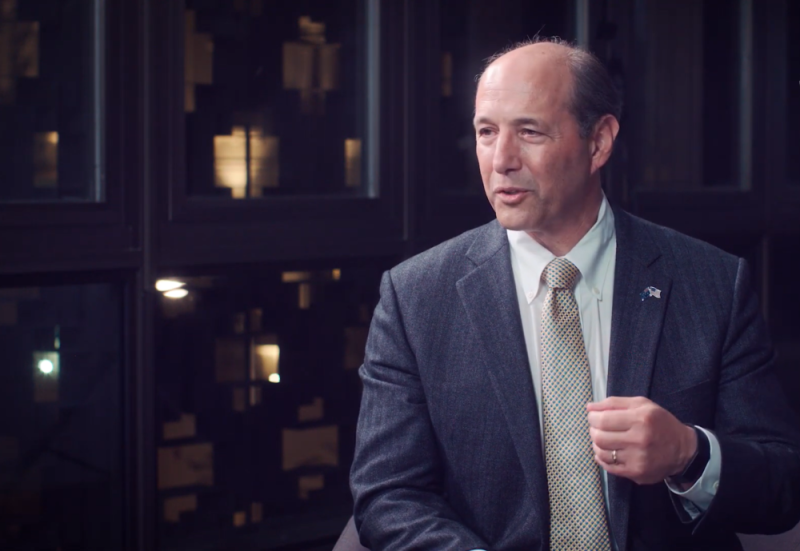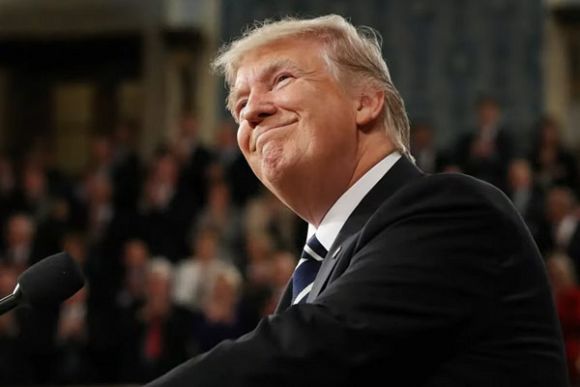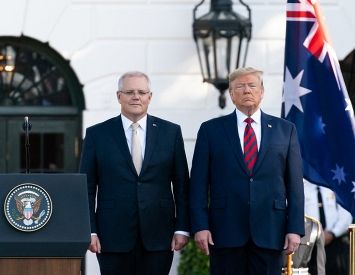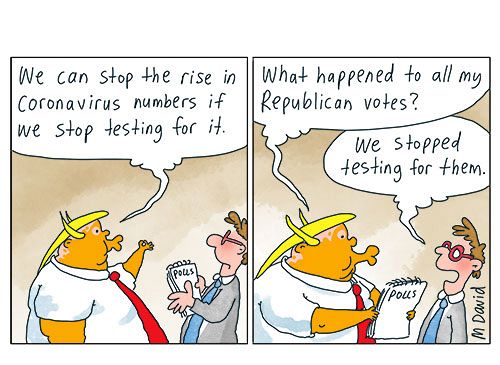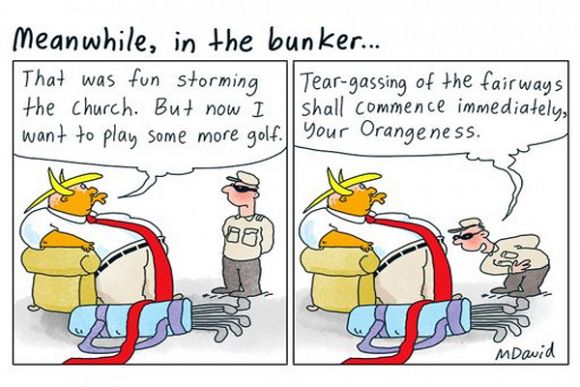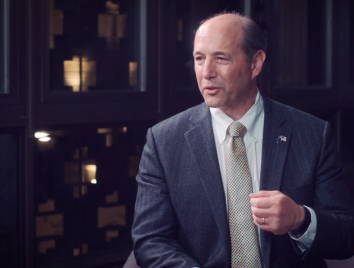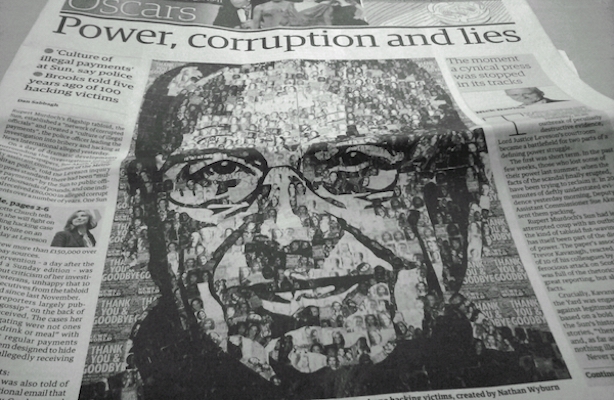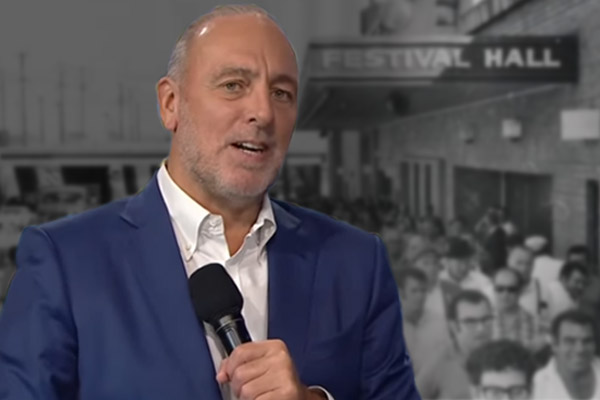IA recently interviewed Jeff Bleich, one of America’s great legal minds and a longtime friend and adviser to Barack Obama.
Bleich was also U.S. Ambassador to Australia from 2009-2013.
Paul Keating called Bleich “the best U.S. Ambassador ever sent to Australia". After some initial private chitchat and some off the record stuff, we decided to discuss the elephant that is still in the room.
Rhys Muldoon (RM): Well, let’s get into it. So with these claims of voter fraud, what have you been up to?
Jeff Bleich (JB): I’m part of a group called “Verified Voting”, that’s been looking at the security of a lot of these voting machines and if you don’t have a paper backup, there is a real risk of them being hacked.
This time around, we were able to verify that they weren’t hacked. It was a secure election. But until you can come up with hack-proof and auditable online voting systems, it’s not worth the risk.
RM: Obviously, here in Australia, we still use paper and pencil.
JB: Yep, well sometimes analogue is the best way.
RM: How many different types of voting systems do they have in the [United] States?
JB: There are 10,000 different jurisdictions and probably over a hundred different voting systems.
RM: With everything that’s been going on, someone’s been checking those systems?
JB: Yeah. We have our Department of Homeland Security. That department has a whole division that is focussed on ensuring cybersecurity and critical infrastructure, including our voting systems. They did a complete audit of systems and found that there was no evidence of any hacking. Which, again, they said there was no systematic fraud of our system and yet nonetheless the President keeps making these false and completely unsubstantiated claims.
RM: What chance do you think he has legally?
JB: I don’t think he has any chance legally and as a lawyer you never say that.
RM: Do you have confidence in the Supreme Court?
JB: Um, I certainly have confidence in the Supreme Court on this issue. It’s very different from what happened in 2000. And in 2000 I thought it was inappropriate for the Court to intervene. But there at least you had one state. Everyone agreed that it came down to the accuracy of the vote count in that state … then you had Al Gore concede, which resolved any competition or conflict. This one’s completely different.
RM: How long can he [Trump] keep this up? How much time-wasting can he do?
JB: Here’s how it would work. He can continue to beat this drum up until the day he leaves office and then continue afterwards, and I think he will. I don’t think he will ever concede.
RM: Do you think Bill Barr is having any influence? He seems to be acting a little “broken arrow”, if I can use that term.
JB: Yeah. Look I think AG Barr has overstepped the bounds of Attorney General. An AG’s responsibility is to apply the law in an even-handed way. It’s been very clear that he has used his authority to serve the president, rewarding friends and punishing enemies.
RM: I wanted to ask a basic question. Is Guiliani any good as a lawyer?
JB: I’ll put it this way: If I were special counsel to President Obama and asked him to announce that we were going to present some major evidence at the Four Seasons in Philadelphia and then it turned out I had the wrong place, and I was presenting no evidence in the parking lot of a landscaping company, I wouldn’t be special counsel anymore.
RM: What do you think Trump’s endgame is?
JB: I think his endgame is pretty clear, which is there’s nothing in it for him in conceding this election. The reason a candidate concedes an election is to allow an orderly transition of power for the good of the American people. He has put his own interests ahead of the American people.
He can make it so difficult for Joe Biden to do a proper transition, then Biden may have a difficult beginning to his administration and he can heckle Biden and say, you know, “I would’ve been a better president. It’s sort of “heads I win, tails you lose”. And he keeps his base together because they don’t ever want him to admit defeat.
RM: What percentage of his base do you think actually believe the election was stolen and second do they care?
JB: Well that’s the interesting thing. A poll was taken and 80% of Americans believe Joe Biden won the election and 60% of Republicans believe that Joe Biden won the election, so that means 40% of Republicans are the part of his base that believe it was stolen.
RM: How damaging can that 40% be?
JB: It can be very damaging. If you think a president is illegitimate, then that will embolden you to do things that are dangerous. To defy the law and to undermine the presidency.
RM: If I could ask you to put on your diplomat hat for a moment, how do you think diplomats around the world would be viewing this?
JB: You mean this whole experience of the contested election?
RM: Yes.
JB: Well firstly, I’ve never taken off my diplomat hat. Whenever an election’s over, Americans have to come together, so during the election, I haven’t said the kinds of inflammatory things about Donald Trump I think others have said and now we’ll need to resolve with people who were Trump supporters.
I think the measure of any battle is the peace that follows it. And so, you need to be thoughtful about what you say, even in the most heated times. So there are two things I’ve picked up from diplomats, one is a sense of relief. I think the foreign policy of Joe Biden is a much more normal foreign policy that reflects the traditional consistency of America.
When the president says something, you can count on it … There’s a commitment to partners and allies and multilateral institutions like the World Health Organisation. There’s also a commitment to follow through on international agreements like the Paris Climate Accord. There’s a confidence and a relief that they know what they’re dealing with in Joe Biden. The other thing is American democracy was reliable.
You never had to worry about the kinds of statements that are being made now, where the president claims he only lost because of fraud and that it was a disgrace. You never had to worry about potential rioting over the result of an election. There was just a sense that however charged and however difficult an election might be, somehow we’d find a way to come together.
I believe that’s still true, but I think people around the world are watching and waiting to make sure that it is.
RM: Once the Biden administration starts, how quickly do you think those relationships will be repaired with your Netanyahus or Erdogans or people who were seen to be particularly close to Trump?
JB: I think they’ll be fine. The reason we have allies around the world isn’t because of a particular president … the reason we have these close relationships is shared values, strategic interests, long-standing commitments and occasionally common adversaries. None of that has changed.
I think President Trump thought you could use the power of the presidency to ensure your re-election and part of what heads of state did, was did favours for each other personally, rather than advance their country's interest. So he would ask the Prime Minister of Japan to nominate him for the Nobel Prize, you know, he would ask the leaders in the Ukraine to investigate Joe Biden. That was his notion of what was OK.
Some leaders in the world thought “if he’s willing to do me a favour, I’ll do him a favour” and thought that was a good idea, but, a lot of others didn’t. All of them thought it wasn’t normal. I think they’re going to be comfortable going back to normal.
RM: How much damage Trump can still do before he leaves office?
JB: You can do a lot of damage sometimes by doing nothing. If you don’t continue to “run through the tape” as president, advance things relating to our fight against COVID-19. You can do terrible damage to the country. If you don’t have a stimulus bill, you could hobble the country for a really long time. By hobbling the next administration, the president could cause great harm.
RM: I was concerned hearing about the changes to the Pentagon.
JB: Yes, it’s very troubling. Very troubling. The people who were removed were capable. To put in other folks at the 11th hour, in the final days, doesn’t seem to serve any purpose other than potentially negative ones. If nothing else it's disorienting. It’s distracting. Our defence forces are meant to be focussed on their mission.
Now you’ve got this major distraction for no apparent reason. People are going to wonder why he would made that choice. One fear is that he would do it so that in the event that there was chaos, created by his plans of a “fraudulent election”, he could call out the military to impose order and potentially put in emergency orders and military measures against the American people.
That would be unprecedented since the civil war. And, again, a very dangerous precedent.
RM: How powerful are the positions he has given people within the pentagon?
JB: These are very powerful positions. Secretary of Defense is the highest-ranking figure in our military, below the president. We have civilian command of our military. All of the 4 stars [generals] and the Joint Chiefs [of staff] report to the Secretary of Defense and the President.
RM: Is there any battle for hearts and minds within the military?
JB: My sense is that the senior leadership of the military strongly supported Joe Biden. I know this in part because I was part of a group called “National Security Leaders for Biden”, where over 800 former generals, admirals, ambassadors and other senior national security leaders endorsed Joe Biden, which is relatively rare. I mean it’s not done in that sort of fashion.
A number of these people had been intelligence officers as well and they generally shied away from media, but it was just a situation where they really felt that there was true national security risk associated with some of Trump’s policies and practices.
RM: There’s been so much unprecedented in this Presidency, but that seems particularly unprecedented. For the military to become involved politically, that must be very rare.
JB: Yeah. Yeah, it was. People didn’t do it impulsively. There was a lot of soul searching that went on. I think one of the big concerns, that surfaced early in the Trump presidency, was his demands for loyalty to him, personally, as Donald Trump. And as the Chairman of the Joint Chiefs said recently, and I think pointedly: he said the military command does not serve the President, or even the nation, they take their oath of office to the Constitution. And that’s right.
Their responsibility is to uphold the Constitution of the United States against all enemies foreign and domestic.
RM: Regarding Trump’s future, legally, there’s been a lot of talk about him manoeuvring to be pardoned for any past or future crimes.
JB: There are two things he could do. Either he can try and pardon himself ... I used to teach constitutional law and I used to ask that question to my students, and the answer was no, because if a president could do that, then they could stand on 5th Avenue and shoot thousands of people and then pardon themselves and never be stopped.
And they could also do that to all the members of congress, or [shoot] others who were trying to stop them from holding power and the whole reason for the Constitution was to avoid having a king or a despot again. So I don’t believe any of the founders intended for the president to have the power to pardon himself.
The second thing he could do is resign and ask the Vice President to pardon him, you know, once the Vice President was sworn in as President. I don’t think that would work either. Any vice president who did that would be ending their political career. If Mike Pence did that, he could never be elected president. I just don’t think it’ll happen.
RM: Do you think the position of president will ever be the same again? Has it been forever tainted?
JB: I hope the presidency will recover and I have confidence that it will. The reason we have these norms and conventions is because they work and they matter. They can be inconvenient and frustrating. People sometimes forget why you have them in the first place, until they’re broken. Then you appreciate them more than ever. We’ve seen the consequences of when you abandon them.
I’ve been thinking more and more about how we got to where we are, and I think there are, for Democrats, you know, there’s the right way to do things. Trump kept breaking every convention and not doing things the right way. And part of why his people supported him, his true base, was because they were tired of having the left telling them they were doing things the wrong way. That they weren’t correct. That they were selfish, or they were racist or they were uninformed and that they needed to fix themselves, and I think there was a feeling that Donald Trump didn’t ask people to fix themselves.
As long as they liked Trump, he liked them and that was it, and he didn’t care about their personal behaviour. He just wanted them to support him. And there was something about that that appealed to a lot of voters. I think Democrats, on the one hand, need to restore norms and conventions, but they have to do it in a way which isn’t lecturing and doesn't talk down to people, but is more a reflection of “we’re all in this thing together”.
This is something that works to protect all of us. We need it not for my benefit, not because I know more than other people, it’s because this has worked for everybody, Democrats and Republicans, and we need to bring it back. That’s all.
Rhys Muldoon is an Independent Australia columnist, actor, writer and director. You can follow Rhys on Twitter @rhysam.
Related Articles
- Joe Biden is elected U.S. President — the world waits to see what happens next
- Trump out: Weekend 'good riddance' celebrations in USA
- CARTOONS: Mark David wins hearts and minds
- Reasons to be hopeful for a Joe Biden victory
- A Joe Biden victory is important for progressive politics
 This work is licensed under a Creative Commons Attribution-NonCommercial-NoDerivs 3.0 Australia License
This work is licensed under a Creative Commons Attribution-NonCommercial-NoDerivs 3.0 Australia License
Support independent journalism Subscribe to IA.



